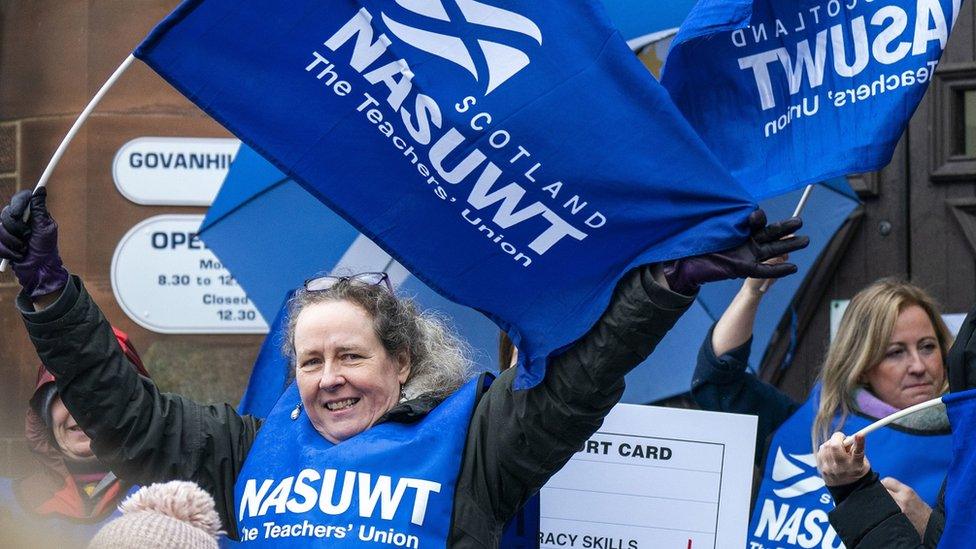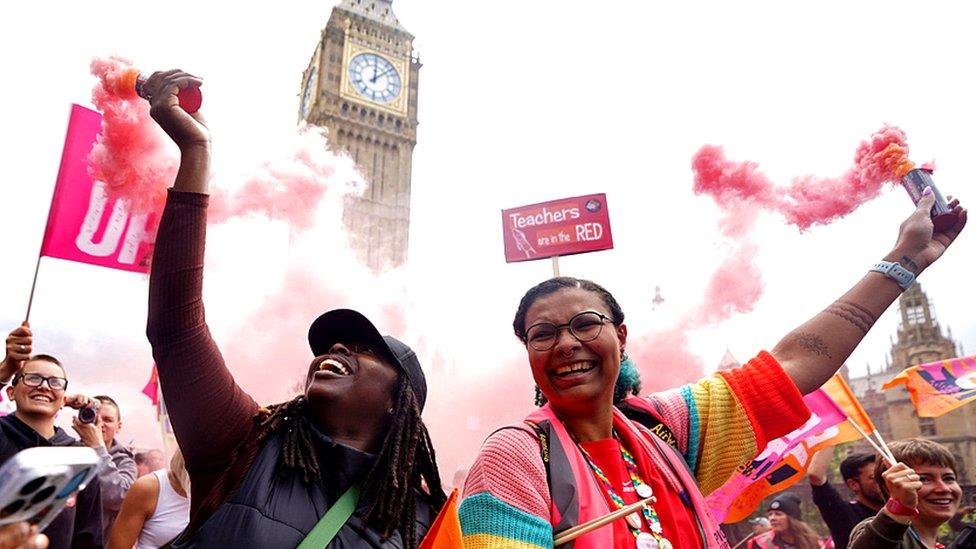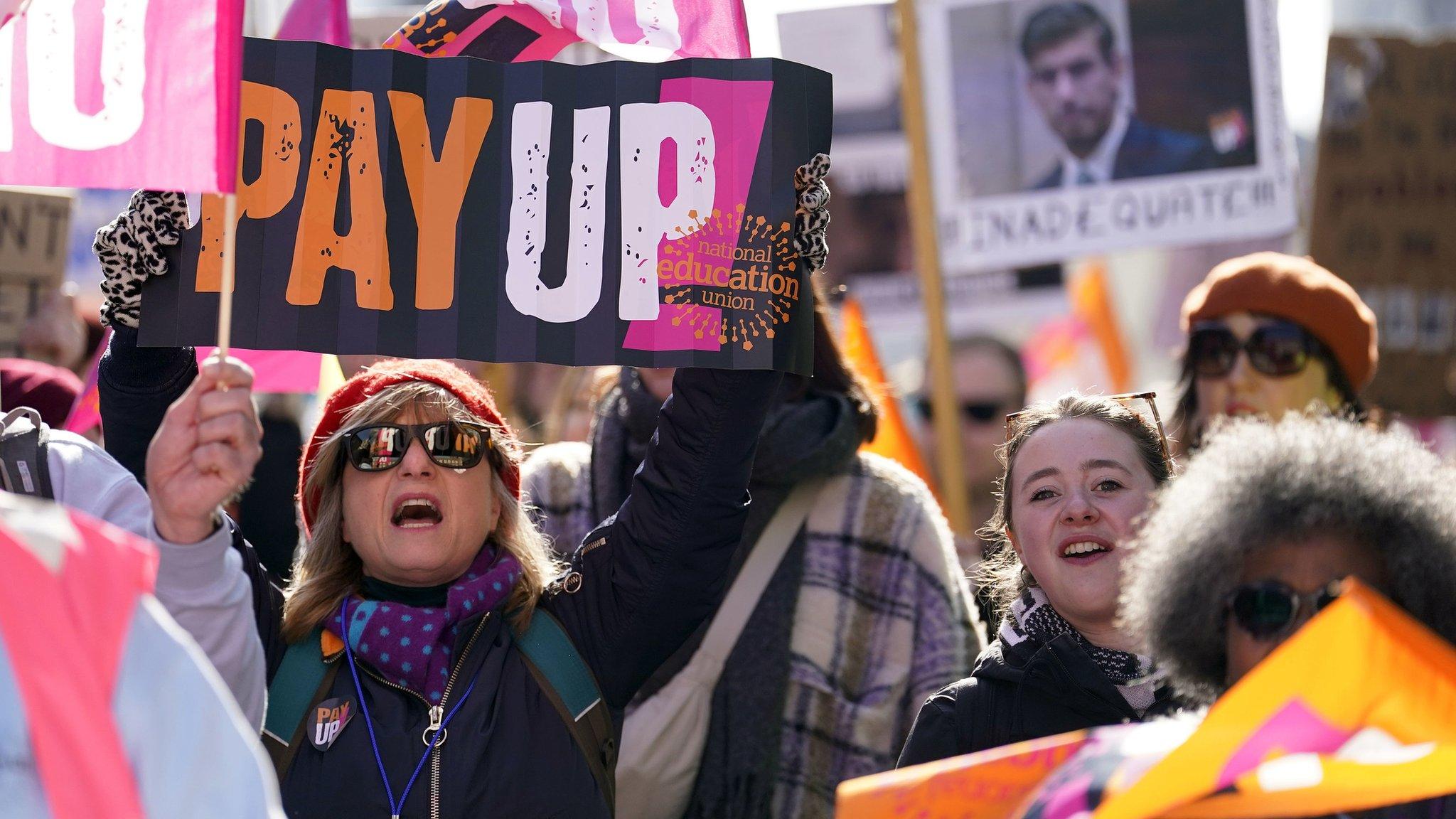Teacher strikes: NASUWT members vote for strike action
- Published

NASUWT teachers in Scotland went on strike in January
More teacher strikes could hit schools in England, after a second education union voted to walk out over pay.
The NASUWT union said 88.5% of around 122,000 balloted members voted for strike action, with a 51.9% turnout.
Teaching unions in England want an above-inflation pay rise that is funded by the government rather than coming out of schools' existing budgets.
The Department for Education (DfE) says it has already made a "fair and reasonable" pay offer.
A larger union, the National Education Union (NEU), has already held seven national strike days since February and is re-balloting members for more action in the autumn.
On each of those days, about half of schools have had to close or partially close.
During the most recent NEU strikes, last week, most state schools in England restricted access to pupils or were fully closed, according to DfE figures, external. More were fully closed on Friday (8%) than Wednesday (6%).
NASUWT said it would now consider going on strike in the autumn term, and that it would co-ordinate action with any other education unions that vote to walk out.
Its teacher members in 56 sixth form colleges have already backed strikes so would also be expected to join any action by those in schools.
The union also plans to begin action short of a strike in September.
It has not given further detail about what that action could involve, but action short of a strike taken by teachers in other unions this year has included refusing to provide lunchtime supervision or to attend meetings held outside working hours.
Dr Patrick Roach, NASUWT's general secretary, said the vote was the largest mandate the union had secured for industrial action in more than a decade.
"Today our members have sent a strong message to the government and to employers that teachers demand a better deal on pay and to address excessive workload and working hours," he added.
The four teaching unions involved in the dispute with the DfE want an above-inflation pay increase, plus extra money to ensure any pay rises do not come from schools' existing budgets.
Most state school teachers in England had a 5% pay rise for the year 2022-23.
After intensive talks, the government offered an additional one-off payment of £1,000. It also increased the offer for most teachers next year to 4.3%, with starting salaries reaching £30,000.
The DfE described it as a "fair and reasonable offer" and said schools would receive an extra £2.3bn over the next two years.
But all four unions involved in the dispute rejected the offer.
The DfE said further strike action would cause "real damage" to pupils' learning.
"We recognise and value the hard work of teachers - but we must balance pay offers with the need to make responsible decisions that are affordable so we can continue to tackle inflation," an official added.

Are you an NASUWT member with a view on the strike? You can share your experiences by emailing haveyoursay@bbc.co.uk, external.
Please include a contact number if you are willing to speak to a BBC journalist. You can also get in touch in the following ways:
WhatsApp: +44 7756 165803
Tweet: @BBC_HaveYourSay, external
Please read our terms & conditions and privacy policy
If you are reading this page and can't see the form you will need to visit the mobile version of the BBC website to submit your question or comment or you can email us at HaveYourSay@bbc.co.uk, external. Please include your name, age and location with any submission.
Related topics
- Published15 April

- Published7 July 2023

- Published29 April 2023
